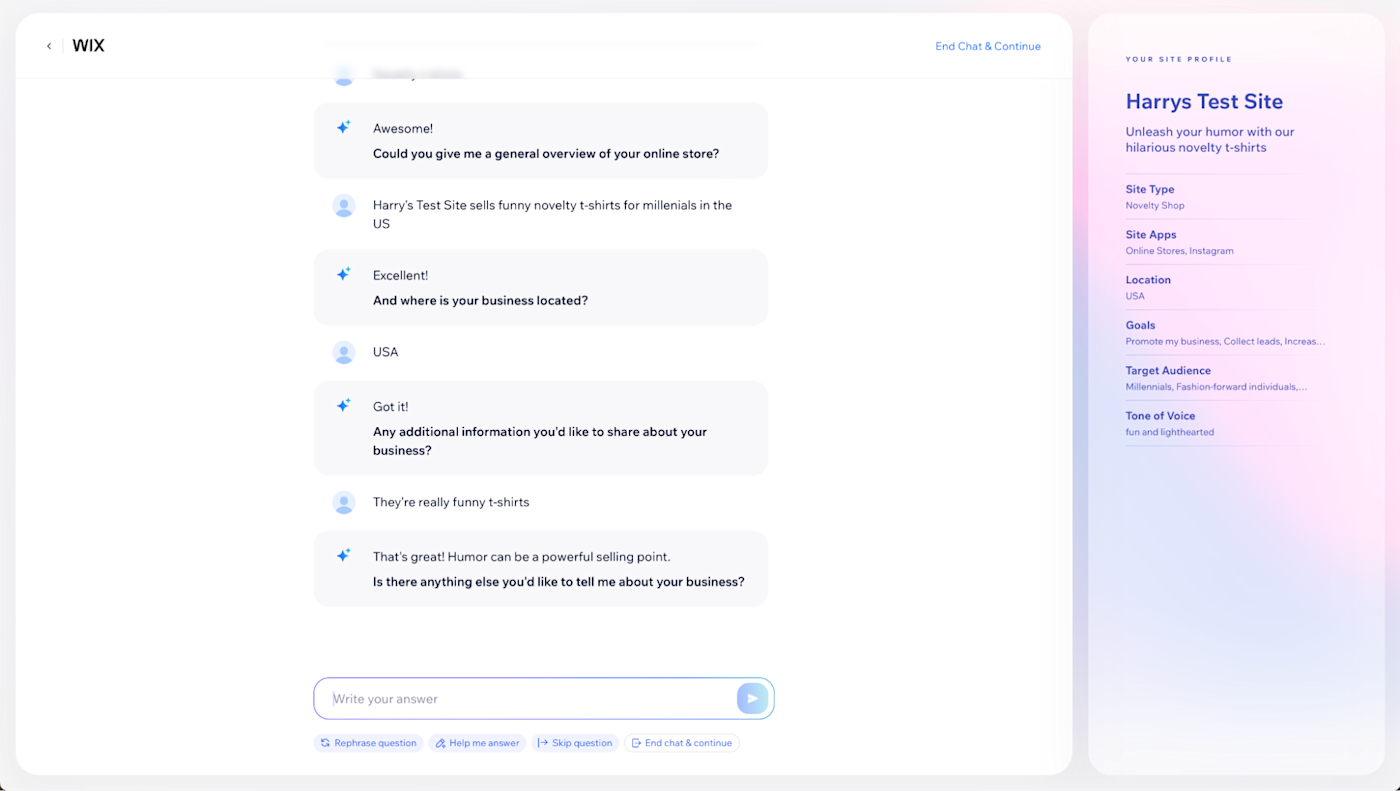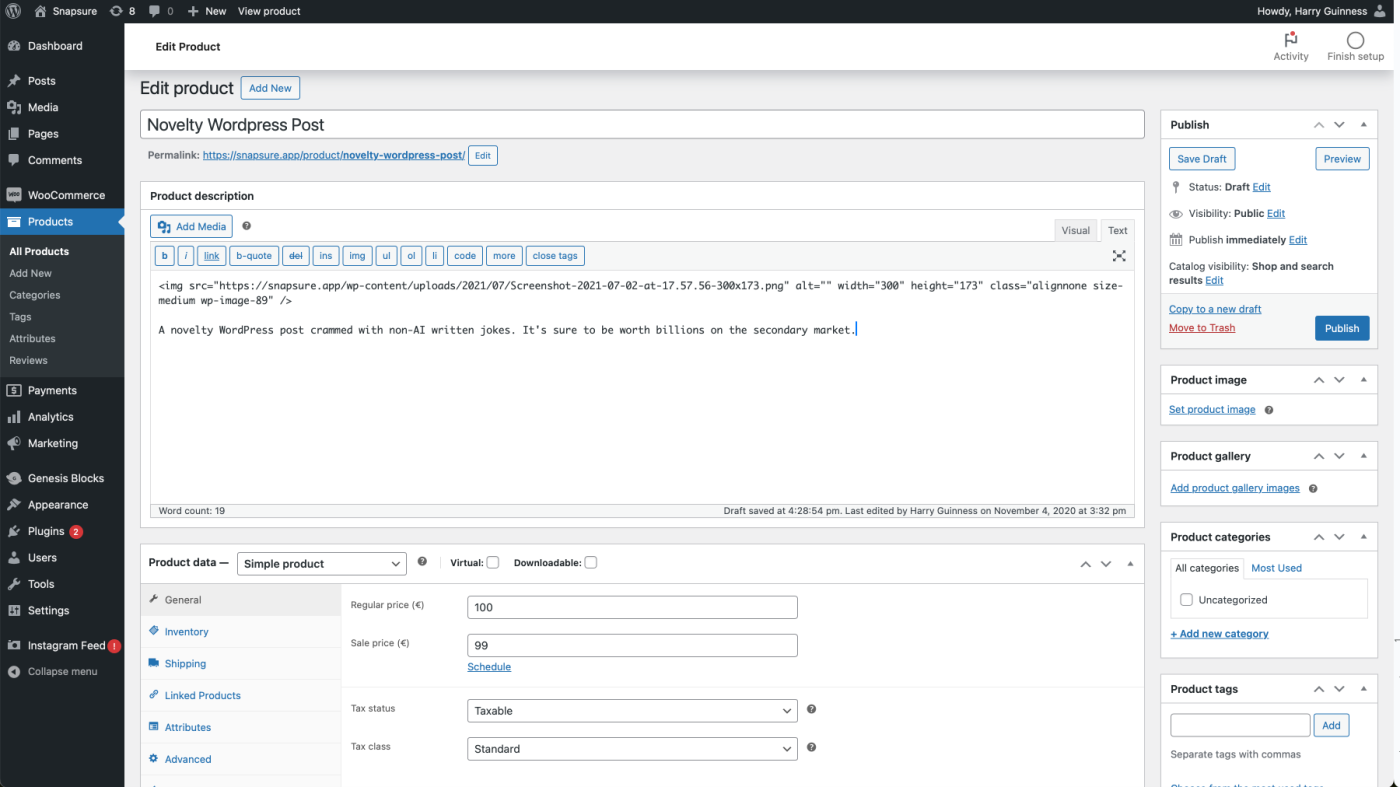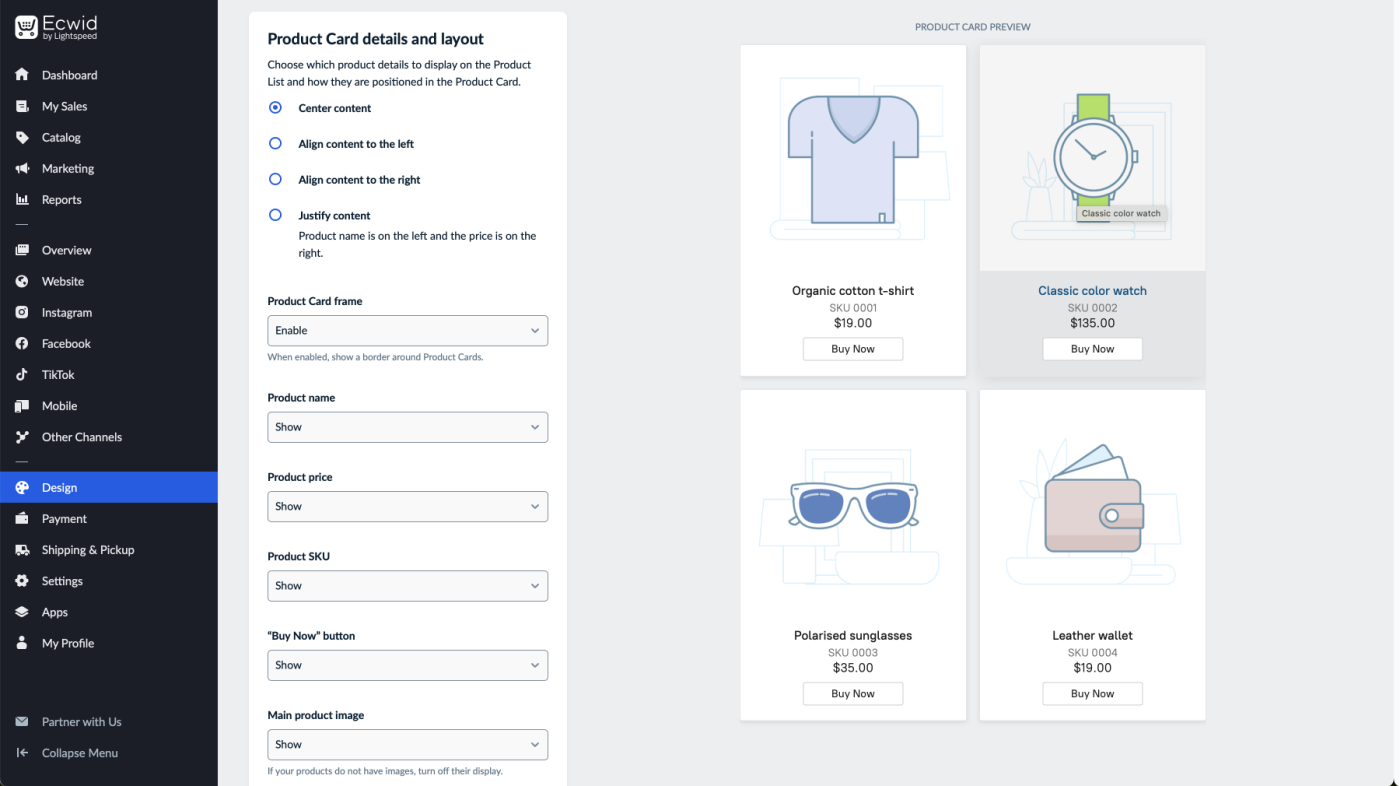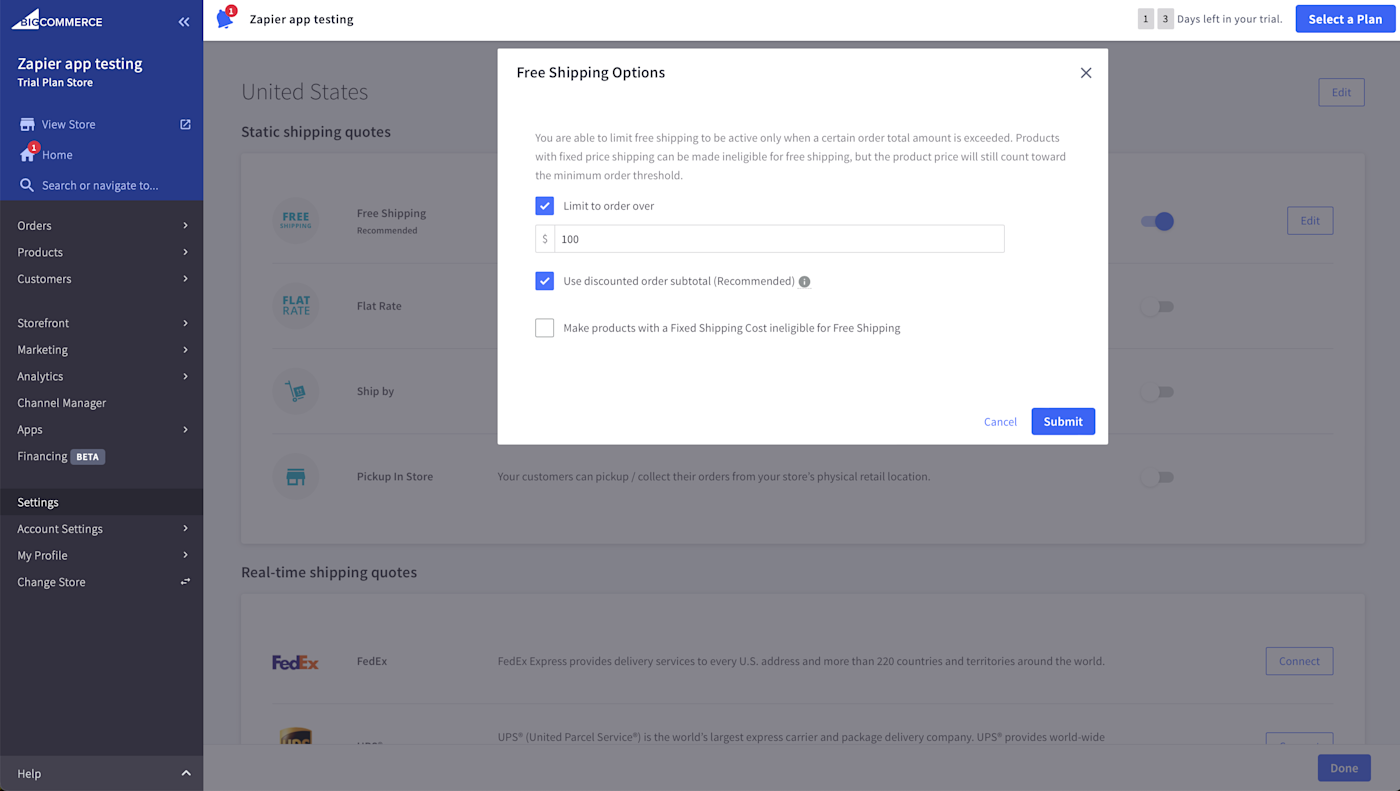Shopify is the biggest name in eCommerce—and for good reason. It handles everything you can think of when it comes to your digital storefront, including site hosting, SEO optimization, inventory management, order and shipping workflows, and payment processing, all while giving you customizable, mobile-friendly design templates to craft a successful online presence.
But while this exhaustive suite of tools and services covers all your eCommerce bases, it might also actually exhaust you. Depending on your business's focus, you may not need all the bells and whistles that come standard with Shopify. Maybe you're just looking for a dynamic website, or maybe you only need to manage large-volume sales.
If you're looking for a more targeted eCommerce approach, you're in luck. Zapier has done extensive testing for head-to-head comparisons of Shopify and other apps, and the team has also tested all the best eCommerce website builders. Here, we'll share that list of Shopify competitors with you to help you decide which one is best for your business.
The 6 best Shopify alternatives
Squarespace for a general-purpose website builder
Wix for small businesses and creatives
Square for in-person businesses
WooCommerce for WordPress websites
Ecwid for a free eCommerce platform
BigCommerce for large-volume sellers
What is Shopify?
Shopify is an eCommerce platform that takes care of literally every aspect of running a digital storefront, no matter how big or small your business.
It delivers an accessible, flexible set of tools designed to support you and your customers throughout the buying cycle, from website creation to order fulfillment, upsells, and exchanges. You can design your online store, manage products, handle customer support, and track order fulfillment, and you can do it all through an intuitive dashboard. You don't have to be a coding genius—or even know one—to build a successful digital storefront with Shopify.
Shopify is scalable, too. You can add features and functionality as your business grows, thanks to the platform's app store. Looking to feature customer reviews, or generate custom reports to monitor your analytics? With Shopify, there's an app, or a plug-in, for that. And with secure site hosting and payment processing, Shopify takes practically all the logistical headaches out of managing your online store.
If that sounds like a lot—or if you've tried Shopify and it's not your style—here are some Shopify alternatives to consider.
The best Shopify alternatives at a glance
Best for | Standout features | |
|---|---|---|
General-purpose website building | Vast library of dynamic templates, product display options, and editing tools | |
Small businesses and creatives | Drag-and-drop editing, blogging features, newsletters, and SEO tools | |
In-person businesses | Intuitive POS system, card readers, loyalty programs | |
WordPress websites | Seamless eCommerce integration into WordPress, customizable templates | |
A free eCommerce platform | Quick setup, flexible design, integration with CMS platforms | |
Large-volume sellers | Sales tax handling, automated shipping, marketplace listing |
A Shopify alternative for a general-purpose website builder
Squarespace

If you're looking to build a stellar website, for example, but eCommerce is only part of your business, you might not need everything Shopify gives you. And there's no need to order a Double Double Animal Style when all you really need is a cheeseburger.
This is where a dedicated website builder like Squarespace comes in. Squarespace is a great choice for artists, bloggers, and other professionals who rely on a visually compelling presence to reach their audience. Offering a vast library of dynamic templates, as well product display options and photo and editing tools, Squarespace makes it easy to build an eye-catching site—with or without eCommerce options.
If you opt for Squarespace, you'll miss out on some of the SEO optimization and eCommerce features that Shopify provides. Sales (online and in-person), shipping, and payments are all handled more robustly by Shopify, and Shopify's app marketplace will boost your marketing efforts as well. At the same time, all that functionality will probably cost you more than Squarespace will. So if content takes priority over eCommerce, Squarespace might be a better, cheaper solution.
You can do even more with Squarespace by connecting it to Zapier. Learn more about how to automate Squarespace, or get started with one of these templates.
Create Constant Contact contacts from new Squarespace form submissions
Create Klaviyo subscribers from new Squarespace form submissions
Read more: Shopify vs. Squarespace
A Shopify alternative for small businesses and creatives
Wix

Another potentially cheaper and more flexible option to consider is Wix. Like Squarespace, Wix is designed primarily with content in mind, at the expense of the extensive eCommerce features you'll find with Shopify. But if you're looking to build a rich, engaging site with little to no web design experience, Wix makes a good choice.
It offers drag-and-drop editing of hundreds of industry-relevant themes, which you can then easily customize to put your own visual stamp on your web presence. Much like Squarespace, Wix is also good for content creators looking to showcase portfolios of their work. But it's Wix's blogging features that make it stand out. With a user-friendly interface that features built-in SEO tools, Wix allows you to easily craft blog posts with a better chance of reaching readers. Newsletters, too, are something that Wix excels at, and you can send them free of charge to up to 200 subscribers per month.
Of course, Shopify has the advantage when it comes to online sales, and that's particularly true if you're thinking internationally. Wix is limited in its support of international shipping, and its POS (point-of-sale) features are limited to within the US. Shopify also plays nicely with more tools than Wix, which offers considerably fewer eCommerce integrations. But if pushing content to readers is your goal, Wix is definitely a platform worth considering.
If you do go with Wix, connect it to Zapier, so you can get Wix talking to all the other apps you use. Here are a few templates to get you started.
Add rows to Google Sheets spreadsheets when a new Wix Form is submitted
Create HubSpot contacts when a new Wix Form is submitted
Create or update ActiveCampaign contacts when a new Wix Stores order is placed
Read more: Shopify vs. Wix
A Shopify alternative for in-person businesses
Square

Perhaps the little "e" in "eCommerce" doesn't actually mean all that much to your business. If you're focused more on in-person selling, then you should definitely consider Square to help you manage your sales.
Square provides you with an intuitive POS system for payment processing that functions even while offline. You'll also get access to card readers and a Tap to Pay feature. Create customer profiles and subscribe them to loyalty programs and newsletters. And yes, Square also supports an eCommerce website for clients to find you virtually before they find you physically.
If you're not operating a brick-and-mortar store or pop-up shop, Shopify's eCommerce features are going to be more extensive than what you'll find with Square. It's also important to note that things like sales analytics, advanced marketing tools, payroll processing, and the loyalty program will cost you extra in Square.
Still, Square does provide you with free access to the standard features and is a great option if a significant portion of your sales occurs in the real world, rather than the virtual one.
You can do even more with Square by connecting it to Zapier, so it works with all the other apps you use to run your business. Learn more about how to automate Square, or get started with one of these templates.
Save new Square transactions to Google Sheets rows
Read more: Shopify vs. Square
A Shopify alternative for WordPress websites
WooCommerce

If you're running on WordPress—or considering it—then WooCommerce is the first tool you should check out. The WooCommerce plugin offers you a seamless way to integrate eCommerce directly into your existing site or blog.
Because WordPress offers thousands of customizable design templates, it affords you a level of flexibility that you might not find with Shopify. You'll also be able to host your site separately, giving you more ownership of your virtual space than you might otherwise enjoy. And while pricing is hard to compare because of things like plugins, apps, and payment processing fees, you'll almost certainly pay less to get comparable functionality from WooCommerce.
Depending on your technical expertise, you might view the advantages offered by WooCommerce as challenges. WordPress can be more complex when it comes to site building and maintenance, and the need to host your site separately introduces another level of technical know-how.
Still, if you're a WordPress-based business, or if you're searching for a more flexible arrangement, WooCommerce is an attractive alternative.
You can connect WooCommerce to all the other apps you use with Zapier's WooCommerce integrations. Read more about how to automate WooCommerce, or try one of these pre-made workflows.
Update contacts in ActiveCampaign from new WooCommerce orders
Update contacts in Flodesk from new WooCommerce orders
Read more: Shopify vs. WooCommerce
A Shopify alternative for a free eCommerce platform
Ecwid

Ecwid by Lightspeed is a scalable solution that lets you dive into the eCommerce pool without a ton of upfront time or financial investment.
It's quick, easy, and flexible in terms of start-up and design. You can integrate it directly with your existing website, or you can build your own from scratch. And if there are design templates that you found elsewhere and just can't live without, no problem. Ecwid is compatible with most CMS platforms (like WordPress). So even if your site needs to serve a purpose other than eCommerce, you've got the flexibility to do just that.
Like with WooCommerce, you'll need to host your Ecwid site separately. Also like WooCommerce, while Ecwid's base package is free, a paid plan is required for additional features like social media integration and payment processing (from $15/month for their Venture Plan). Depending on the level of functionality you're after, there may be lower-cost alternatives to consider.
But if you're looking to get your eCommerce store off the ground in a hurry, and with little to no long-term commitment, Ecwid is well worth considering.
If you decide to use Ecwid, connect it to Zapier, so you can automate all your eCommerce workflows. Here are some ideas to get you started.
Create Constant Contact contacts from new customers in Ecwid
A Shopify alternative for large-volume sellers
BigCommerce

Established sellers who are already shipping a significant amount of product should look into BigCommerce as an option. BigCommerce's platform supports enterprise-level eCommerce with sales of $50,000 a year and up (though their Standard plan does support businesses with less revenue.)
BigCommerce's features allow you to handle sales tax, automate shipping, and list products in marketplaces like Amazon, eBay, and Facebook. BigCommerce also manages the site hosting logistics for you and provides you with customizable design options if you have needs beyond sales and shipping.
Users looking beyond 12 free design themes will need to pay extra, though, and BigCommerce's app store isn't as extensive as the one offered by Shopify. Given that, as well as the platform's focus on sales volume, BigCommerce might not be the best place to launch your brand-new online store. But if you're looking to develop your eCommerce from a position of established sales, this tool gives you an affordable and scalable way to take your business digital.
You can streamline BigCommerce even more by connecting it to Zapier, so you can make it work better with all the other apps you use. Learn more about how to automate BigCommerce, or start with one of these templates.
Add Contact to Customer List With Email in Google Ads for New Customer in BigCommerce
Which Shopify alternative should you use?
When considering alternatives to Shopify, it's helpful to take stock of where your business is, and where you'd like it to go—both in the short and long term. Are you just looking for an all-purpose website building tool to attract traffic? Are you a creative looking to feature a blog or visual content? Will you be conducting in-person sales? Maybe you're already tied to a high-traffic sales model, or a WordPress-based site. Whatever your situation, one of the platforms we've featured here can help.
And even if you decide that Shopify is the way to go, you'll want to make your work even more efficient with automation. Check out these ideas on how to achieve just that:





